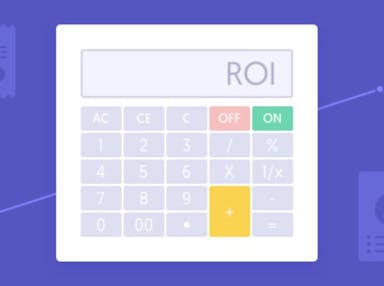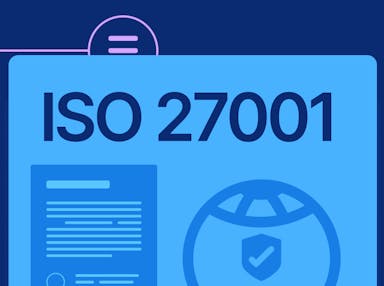
Hiring an ISO 27001 Consultant: Is It a Fast-Track to Certification?
Emily Bonnie
Senior Content Marketing Manager
Cavan Leung
Senior Compliance Manager
There are two undeniable truths of information security frameworks like ISO 27001: compliance is essential to successful business growth, and it can be incredibly tedious.
ISO/IEC 27001 in particular is a major undertaking, with 93 prescriptive controls and a long list of tasks to complete, from gathering evidence to reviewing policies to training employees. While some organizations handle everything internally, this can stretch resources thin and even compound existing security risks.
Hiring an ISO 27001 consultant or expert can help streamline the process and strengthen your overall security posture. But it’s not the only way to achieve compliance.
If your company is pursuing ISO 27001 compliance, you’ll want to consider whether you need a consultant or a technology-first approach. Let's dive into these options below.
Need a refresher on ISO 27001? This guide provides an in-depth look at this international standard and what it takes to build and maintain a compliant ISMS.
Why hire an ISO 27001 consultant?
ISO 27001 is one of the most detailed and prescriptive security standards in the world—and that’s what makes it so challenging to implement correctly. Unlike frameworks such as SOC 2, which allow more flexibility, ISO 27001 specifies exactly how certain controls must be implemented and maintained to establish, operate, and continually improve an Information Security Management System (ISMS).
Chris Sesi, Secureframe’s Chief Product and Operations Officer, explains that this is a key reason people seek out an ISO 27001 expert: “ISO is a very prescriptive standard. It has a lot of nuance and detail that’s required to meet the ISO 27001 controls...Having someone that understands how to implement those controls and operate them is very, very important.”
Depending on your company size, budget, and goals, that “someone” could be a:
- An in-house compliance manager or other internal expert
- An external ISO 27001 consultant specialized in implementation or readiness
- A virtual CISO (vCISO) or managed security service provider (MSSP) with more general compliance expertise
- A compliance expert supporting your team through a GRC platform
Each plays a critical role in translating ISO 27001’s requirements into practice and ensuring that you're doing the right things to keep your organization and your data secure.
Let's take a closer look at which companies or use cases might be a good fit for outsourcing compliance to an expert.
Recommended reading

Why is ISO 27001 Important? Exploring the Business Benefits of Certification
Who should hire an ISO 27001 consultant?
ISO 27001 adoption continues to surge, with 81% of organizations reporting a current or planned ISO 27001 certification in 2025—up from 67% in 2024, according to A-LIGN’s 2025 Compliance Benchmark Report. As more organizations pursue certification to meet customer expectations, strengthen trust, and expand into new markets, many are also realizing just how complex the process can be.
Leveraging the expertise of a consultant or other third-party can help simplify the process, particularly for organizations that:
- Lack dedicated compliance personnel. Startups or smaller teams may not have internal resources to interpret and apply ISO 27001 requirements effectively.
- Need help implementing an ISMS from scratch. Consultants can help put all the policies, processes, people, systems, and technology needed for an ISMS in place—or at least help build a roadmap to readiness.
- Operate in highly regulated industries. Sectors like healthcare, manufacturing, and other critical infrastructure sectors often require ISO 27001 certification to meet contractual or regulatory demands and find it more challenging due to lower cyber maturity.
- Have complex, distributed operations. Global enterprises aligning multiple entities under one ISMS may benefit from external project management and coordination.
- Is preparing for their first ISO 27001 audit. Consultants can act as mock auditors, helping identify gaps before the real audit to avoid any delays, costly re-work, or failures,
To more fully understand who might benefit from ISO 27001 consultancy services and when, let's dive into what these services actually are.
Recommended reading

130+ Compliance Statistics & Trends to Know for 2026
What does an ISO 27001 consultant do?

Hiring an outside ISO 27001 consultant can help your company save resources, reduce risk, and strengthen security management—but the exact benefits (or extent) will ultimately depend on what you need help with.
An individual consultant or a firm can offer a range of specialized ISO 27001 consultancy services to simplify different steps of the process, from building an ISMS and conducting internal audits to employee onboarding, streamlining evidence collection, and more.
While every ISO 27001 consultant or firm is different, some core services are:
ISMS implementation
An ISMS is the core requirement of ISO 27001 compliance. As a result, most ISO 27001 consultants will be able to help you design, build, and implement every management system component (including documents, processes, and technology) according to the standard's requirements. This includes anything from basic security policies to access control and cryptography—basically, whatever helps your organization manage, maintain, and improve security.
Not only is the "what" of ISMS implementation hard for some organizations to take on alone, the "how" is also difficult. That’s because the ISO 27001 standard specifies exactly what controls are needed to create and maintain a secure ISMS in a section called Annex A. In the latest version of the framework, ISO 27001:2022, Annex A is a catalog of 93 technical, administrative, and physical controls that organizations must implement to meet ISO 27001 requirements (specified in another section, Clauses 4-10). A separate standard in the ISO 27001 series, ISO 27002, then specifies exactly how to implement these controls.

There’s a lot to these ISO 27001 requirements and controls, and a good ISO 27001 consultant can help you understand, implement, and document them correctly in a Statement of Applicability while improving your overall security.
Policy creation
Because it’s difficult and time-consuming to write security policies and procedures from scratch, many companies resort to recycling boilerplate copy. This can be an issue for any security framework, but for ISO 27001 in particular since it dictates specific policy language. It can also result in policies that don't reflect the actual processes in place.
An ISO 27001 consultant can draft information security policies and procedures that meet ISO 27001:2022 requirements and reflect your organization's operations.
Employee onboarding
A common problem in many companies seeking ISO 27001 compliance (or with any framework) is helping new hires become more security-aware.
Even if your company is already good at requiring policy reviews and conducting security training during employee onboarding, a consultant can help you make them more effective and distribute them to every employee, not just new hires. This is an essential requirement auditors often verify and can help you avoid a common audit exception.
Securing cloud infrastructure
With most companies using cloud infrastructure in some way, cloud security has become another key requirement for ISO 27001 compliance.
While many of the controls that help secure cloud environments are part of a compliant ISMS, an ISO 27001 consultant should pay special attention to cloud monitoring. In the best cases, your consultant will help you implement and use automated tools for continuously scanning and securing your cloud infrastructure.
Risk assessment and management
Risks are everywhere in the security environment: From unusual users to vulnerable vendors, identifying, assessing, and mitigating risks is key to ISO 27001 compliance and information security in general.
In addition to implementing risk management and assessment processes internally, your ISO 27001 consultant can—and should—set up workflows to perform and manage vendor risk assessments as well. Risk management is an ongoing process that involves staying up-to-date with your own and each of your vendors’ compliance status.
Evidence collection
Evidence collection is an important stage of any ISO 27001 audit. Consultants can help collect evidence such as configuration screenshots and documentation to perform a gap analysis and evaluate how well your organization is following its own security policies and meeting ISO 27001 requirements.
Auditing and reporting
Last but certainly not least, an ISO 27001 consultant can also conduct an internal audit and generate reports to help demonstrate your organization's compliance posture, especially if you're not pursuing certification. If you are preparing for a certification audit, they can perform a readiness assessment to ensure you're prepared for the audit (as long as they aren't performing the audit themselves).

ISO 27001 Compliance Checklist
See all the steps you'll need to complete as you prepare for, achieve, and maintain ISO 27001 compliance, with or without a consultant.
Benefits of hiring an ISO 27001 consultant

Working with an ISO 27001 expert—whether a consultant, vCISO, or other specialist—offers a range of benefits that go beyond just checking the compliance box. These professionals bring deep domain knowledge, objective insights, and the kind of hands-on experience that can accelerate ISO 27001 readiness and improve maturity across your entire security program.
1. Streamlined ISMS development or improvement
Equipped with a wealth of knowledge and experience, ISO 27001 experts know exactly what the standard requires and how to meet its most prescriptive clauses. They can help you design and implement a complete ISMS faster—building the policies, processes, and controls you need to achieve compliance while minimizing unnecessary work.
Even if you already have an ISMS in place, a consultant or vCISO can perform a gap analysis to identify weaknesses or missing documentation. This guidance can significantly streamline implementation and shorten the time to compliance. It can also save valuable internal resources that would otherwise be spent deciphering ISO 27001’s nuanced requirements.
2. Easier audits and reporting
There’s nothing more discouraging than reaching the audit stage only to discover major gaps or missing evidence. Many ISO 27001 consultants and compliance experts help clients avoid this by conducting readiness assessments—essentially a dry run before the official certification audit.
Because these experts are deeply familiar with what auditors expect to see, they can identify potential issues early, collect the right documentation, and ensure your controls map properly to the ISO 27001:2022 Annex A requirements. As a result, audits tend to move faster and with fewer surprises.
3. Less guesswork and more oversight
ISO 27001 is highly prescriptive, and its language can be intimidating or ambiguous for those without prior experience. Having an expert involved removes the guesswork. You gain confidence that your ISMS truly aligns with the standard and that you’re maintaining the right documentation and evidence to prove compliance.
External specialists also provide an objective lens—something internal teams often lack. They can pinpoint inefficiencies or outdated processes that may have become “the norm,” improving overall oversight and helping your organization mature its security posture.
4. Stronger security in the long-term
In addition to helping catch security gaps that internal staff may overlook before an audit, some ISO 27001 consultants or managed security providers work with their clients long-term to ensure these gaps remain filled. They can help perform regular internal audits and make sure that key ISMS processes remain effective, which can be crucial for sustaining improvements to your security and compliance posture over time.
This ongoing partnership can help sustain improvements to your security and compliance posture over time and build the foundation for a culture of security. Your internal teams can become familiar with and adopt best practices they can carry forward—whether they continue working with a consultant, implement an automated solution, or pursue compliance with additional frameworks.
Recommended reading

ISO 27001 Certification Process: A Step-by-Step Guide
Drawbacks of hiring an ISO 27001 consultant
Despite their many benefits, hiring an ISO 27001 consultant can come with drawbacks, especially for organizations seeking a long-term, scalable compliance program.
1. Limited or inconsistent services
Not every ISO 27001 consultant offers the complete set of services your organization might need. While almost every consultant can build and implement an ISMS, some aren’t always well-versed in cloud security, vendor risk management, or other compliance requirements. As a result, you may still need to engage multiple vendors or manage parts of the process internally.
2. Weaker culture of compliance
While outsourcing ISO 27001 implementation can be a time-saver, it may also hinder your team’s ability to fully internalize security best practices. When consultants handle everything from risk assessment to evidence collection, employees may view compliance as an external responsibility rather than a shared one.
Over time, this can weaken your internal security culture and make it harder to sustain compliance independently. This can cause additional costs or delays each time you need updates to your ISMS or a re-certification audit.
3. Reliance on manual processes
Even experienced consultants often rely on spreadsheets, static documentation, or disparate tools to track progress and implementation. While this may work on a small scale, this type of manual approach can make it difficult to manage compliance over time or across multiple frameworks or entities.
4. Significantly high costs
Hiring an ISO 27001 consultant can be a significant investment. Although many companies can justify the cost through risk reduction and resource savings, smaller companies or those seeking continuous support may find it prohibitive.
So, how much does an ISO consultant cost? As with any other type of specialized consulting, the answer varies depending on the particular consultant’s experience and expertise, as well as the specific services you’d like to hire for. On average, though, rates average between $1,400-$1,800 per day, bringing the total estimated cost of achieving ISO 27001 compliance (not certification) with a consultant to $38,000. Pivot Point Security breaks this down into two phases:
- Phase I: $20,000 — Defining audit scope, risk assessment, risk mitigation, gap analysis, and remediation plan
- Phase II: $18,000 — Gap remediation, registrar selection, ISMS development, incident response, internal audit, and audit support
While this investment might make sense for some enterprise or global organizations, many are increasingly looking to an ISO 27001 compliance platform to provide the benefits of consultancy services without the price tag. Let's take a closer look at how these two solutions compare.
Recommended reading

Is an ISO 27001 Certification Worth It? Calculating the ROI of Compliance
ISO 27001 consultant vs automation: Comparing your options
As stated previously, the biggest benefit of an ISO 27001 consultant is the assurance it promises that you're doing the right things to keep your organization and your data secure. Increasingly, that requires not only the right experts but the right tools.
Compliance technology has evolved to the point where many of the tasks once outsourced to consultants—such as risk assessments, evidence collection, and policy creation and management—can now be automated. This automation not only ensures certain functions, like evidence collection and continuous monitoring, are done—but are done faster, consistently, and at lower cost.
| ISO 27001 consultant | ISO 27001 software | |
|---|---|---|
| Expert guidance | Deep knowledge and experience with ISO 27001 controls and implementation | Templates, remediation guidance, and automated workflows built and maintained by experts |
| Risk assessment | Can perform comprehensive risk assessment, but often a one-off or manual approach like spreadsheet tracking | Automated workflow including risk scoring, treatment plans, and control linking to improve risk management and visibility |
| Policy creation | Can help you draft and distribute all policies you need for first audit, but typically won't manage them over time | Pre-built, customizable ISO 27001 policy library developed by experts and former auditors with automated workflows for updating, distributing, and tracking employee acceptance on recurring basis |
| Evidence collection | Can collect evidence and put processes in place, but may be manual (e.g. screenshots, spreadsheets, and checklists) | Continuous evidence collection via hundreds of integrations |
| Audit readiness | Can perform gap analysis, readiness assessments, or mock audits at specific point-in-time | Provides automated gap assessments, continuous control monitoring, and dashboards with real-time compliance status |
| Cost | ~$1,500 per day on average for estimated $38,000 in total for point-in-time compliance | Annual subscription-based pricing ranging from $8,000-20,000 for continuous compliance |
| Scalability | Limited by consultant availability and typically only one framework | Supports multi-entity and multi-framework programs at scale |
Compliance technology has evolved to the point where many of the tasks once outsourced to consultants—such as risk assessments, evidence collection, and policy creation and management—can now be automated. This automation not only ensures certain functions, like evidence collection and continuous monitoring, are done—but are done faster, consistently, and at lower cost.The takeaway? A consultant can help you understand the “why” behind ISO 27001, while automation platforms like Secureframe can do that and make it easier to execute the “how.”
Secureframe’s ISO 27001 solution combines automation with access to certified compliance managers and our trusted partner network of vCISOs and consultants—so you get expert guidance plus the efficiency and 24/7 peace of mind of automation..
Recommended reading

The Cost Benefits of ISO 27001 Compliance Automation
Why the future of ISO 27001 compliance depends on expertise and automation
For many organizations, the ideal path forward isn’t choosing between a consultant or a platform—it’s using both.
The future of ISO 27001 compliance relies on combining expert support and tools that automate:
- Gap assessments to show exactly what you need to do to achieve ISO 27001 compliance
- Risk assessments with linking to ISO 27001 Annex A controls
- Evidence collection across cloud and other environments through native and custom integrations
- Policy creation and management aligned with ISO 27001:2022 requirements
- Continuous compliance with real-time data and dashboards showing any compliance gaps or issues to speed up remediation
In other words, the best ISO 27001 software can do everything a consultant can—only faster, more affordably, and at scale.
Secureframe offers all of the benefits of an ISO 27001 consultant in a single automation platform backed by dedicated account managers and experts experienced in ISO 27001 and dozens of other frameworks.
Get expert guidance available when you need it—and automation running 24/7—so you can achieve ISO 27001 compliance faster and maintain it effortlessly.
Request a demo today to prepare for the future of ISO 27001 compliance tomorrow.
This post was originally published in June 2021 and has been updated for comprehensiveness.
“Secureframe works. The main selling point is the time to ISO 27001 certification—you’re talking weeks, not months. And it comes with a price that’s affordable and reliable.” —Vinz Leuenberger, Chief Product Officer, rready
Recommended reading

How rready Achieved ISO 27001 Certification 5x Faster and Expanded in a Competitive Global Market with Secureframe
Should you hire an ISO 27001 consultant?




FAQs
What are ISO consultancy services?
ISO 27001 consultancy services help organizations interpret and implement the ISO 27001 standard to achieve compliance or certification. Services often include ISMS development, policy creation, risk assessments, internal audits, evidence collection, and audit readiness preparation.
What’s the purpose of an ISO 27001 consultant?
The purpose of an ISO 27001 consultant is to provide specialized expertise to ensure an organization—typically lacking in expertise, skills, or knowledge—correctly applies the framework’s requirements, avoids common pitfalls, and accelerates readiness for certification.
Do I need an ISO 27001 consultant to get ISO 27001 compliant?
Not necessarily. While a consultant or expert can help offer expertise, assurance, and readiness support, many organizations achieve ISO 27001 compliance without one—typically, by using software that can offer similar services and benefits.
Make ISO 27001 compliance simple

Emily Bonnie
Senior Content Marketing Manager
Emily Bonnie is a seasoned digital marketing strategist with over ten years of experience creating content that attracts, engages, and converts for leading SaaS companies. At Secureframe, she helps demystify complex governance, risk, and compliance (GRC) topics, turning technical frameworks and regulations into accessible, actionable guidance. Her work aims to empower organizations of all sizes to strengthen their security posture, streamline compliance, and build lasting trust with customers.

Cavan Leung
Senior Compliance Manager
Cavan Leung, CSSK, CISA, CISSP is an information security leader with over a decade of experience in the security, privacy, and compliance industries. A former auditor and security consultant, Cavan performed ERP and SOX compliance audits at Deloitte, as well as SOC 1, SOC 2, GDPR, and ISO 27001 compliance assessments for Fortune 500 companies at Schellman. At Secureframe, he’s helped hundreds of customers achieve compliance with SOC 2, ISO 27001, GDPR, HIPAA, and more.